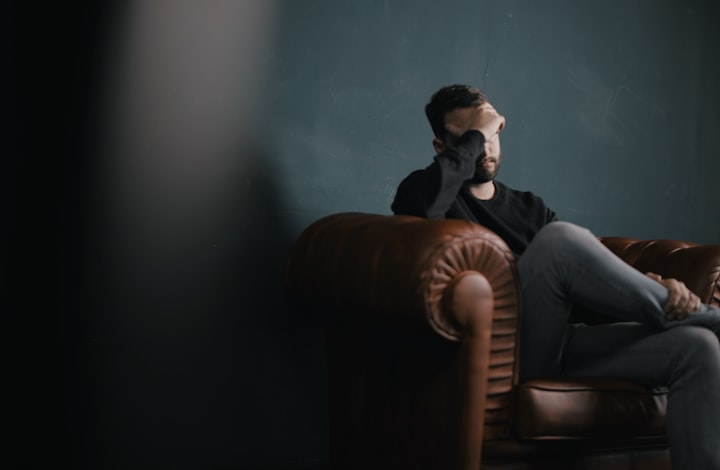
What Major Depressive Disorder (MDD) is and how it is treated.
Major Depressive Disorder (MDD) is a mental disorder that causes persistent feelings of sadness and loss of interest, which can lead to various emotional and physical problems. It affects around 1 in 15 adults in any given year and is more common in women than men.
Symptoms include depressed mood, loss of interest or pleasure in activities once enjoyed, changes in appetite or weight, sleep disturbances, fatigue, slowed movement or thinking, worthlessness or guilt, difficulty concentrating and recurrent thoughts of death or suicide.
MDD can be treated with psychotherapy, like cognitive-behavioral therapy (CBT) which helps change unhelpful thoughts and behaviors; medications such as antidepressants; and lifestyle modifications.
Exercise and relaxation techniques may also help alleviate symptoms associated with MDD. Treatment plans should be tailored to each individual's needs as different option work for different people.
Examine the symptoms of MDD
Examining the symptoms of Major Depressive Disorder (MDD) is important in order to properly diagnose and treat the condition. The primary symptom of MDD is a persistently low or down mood; this may manifest as feelings of emptiness, sadness, and anxiousness.
Other potential symptoms include frequent tearfulness, changes in sleep patterns, problems with concentration and memory, physical aches or pains, fatigue or a lack of energy, eating too much or too little, isolation from family and friends, and changes in libido.
The presence of at least five chronic symptoms for longer than two weeks is necessary for a diagnosis of MDD. Symptoms must severely affect someone's ability to function normally in everyday life. If these symptoms are present, medical advice should be sought out
How to spot the signs of MDD in yourself or in others?
Mental health is an important part of our overall wellbeing and should be cared for with the same attention we would give any other part of our health.
It is important to recognize the signs of potential mental health disorders, such as Major Depressive Disorder (MDD).
Spotting signs of MDD in oneself or others can be difficult because its symptoms vary widely from person to person.
Some common signs and symptoms of MDD include: feelings of sadness or emptiness; decreased interest in activities that were previously enjoyed; difficulty sleeping or sleeping too much; change in appetite; loss of energy; restlessness or sluggishness; difficulty concentrating; feeling worthless, guilty, hopeless, or helpless; thoughts of death or suicide.
If you notice those symptoms in yourself or someone else, speak to a doctor about your concerns. The doctor can assess your symptoms and provide further advice.
If MDD is suspected, they can refer you to a mental health professional for diagnosis and treatment options like psychotherapy, medications, lifestyle changes, holistic therapies, etc.
While MDD can be a challenging diagnosis to live with, there are various ways to manage it and lead a meaningful life.
Physical and Emotional symptoms of depression
Physical symptoms of depression can include fatigue, changes in appetite or weight, difficulty sleeping, and physical aches and pains. Emotional symptoms can include feelings of hopelessness, worthlessness, anxiousness, irritability, guilt, sadness and emptiness.
People may also find it difficult to concentrate and make decisions. Individuals may lose interest in activities that they previously enjoyed doing or become withdrawn from social situations.
Other symptoms can include a loss of energy or motivation to complete activities, thoughts of suicide or self-harm, and avoidance of certain people or places.
Importance of seeking help if you think you may be suffering from depression
It is important to seek help if you think that you may be suffering from depression. Depression is a serious mental illness, and can have a huge impact on someone's life if left untreated. Symptoms of depression can vary from person to person, but often include feelings of persistent sadness, difficulty sleeping or concentrating, feeling hopeless and suicidal thoughts.
If you are experiencing any of these symptoms it is important to talk to someone about your feelings.
This could be a family member, a trusted friend or teacher, or even a health professional such as a doctor or mental health counselor.
Talking about your issues with someone you trust will help to lift the burden of having to cope alone.
They can also provide advice and support on how best to manage your depression as well as advise on any further treatment options that may benefit you.
In addition to talking therapy there are also other forms of treatment available which should not be overlooked when seeking help for depression.
These include medication prescribed by a doctor and lifestyle changes such as exercising regularly or following healthy eating habits. Your doctor or therapist can provide advice and guidance on what treatment option would best suit your individual needs.
About the Creator
Som Dutt
I write about Psychology and Philosophy. I am the top writer in Psychology and Philosophy on Medium.com
https://somdutt777.medium.com






Comments (1)
We are grateful that you took the time to share your story with all of us. A few of the points you made in your article struck a chord with me. You can count on me to be one of your devoted fans, and I can't wait to check out more of your writing in the years to come.